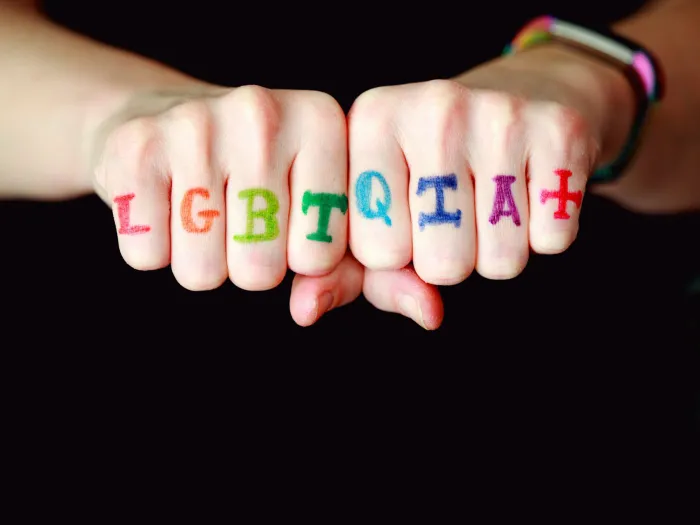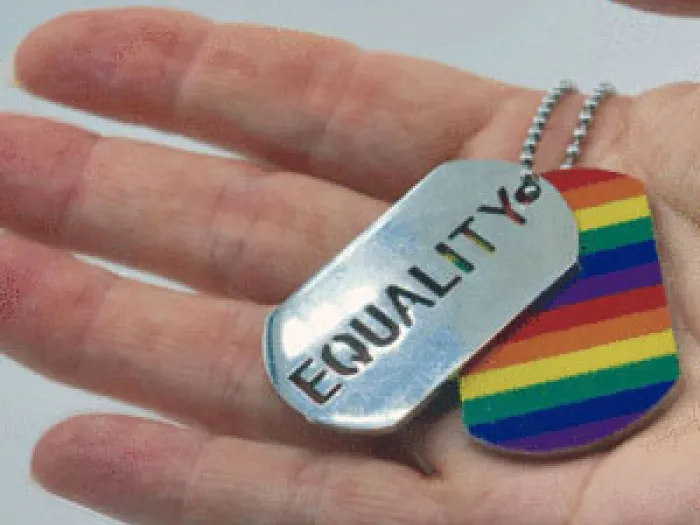Advocacy Committee for LGBTQIA+ Equity lambasts a Trump executive order
The order identifying only two immutable biological sexes could mean an end to federal funds for trans health care

LOUISVILLE — On President Trump’s first day back in office Monday, he issued an executive order identifying only two immutable biological sexes.

This means that the federal government will no longer recognize the legal identities of transgender, non-binary, genderqueer, agender, and intersex people on identification cards including passports and visas. This ends the limited federal funding for trans health care, including hormone treatment and gender affirming surgery; puts imprisoned trans women at further risk by moving them into men’s prisons; and excludes trans women from shelters designed for women who have experienced sexual assault.
This action not only goes against the recommended medical standards for transgender health care and the lived experience of trans people, but is also a denial of the diversity and beauty of God’s Creation.
Enforcing such ultimately ideological standards also harms cisgender people. Cis women’s autonomy is undermined via the same patriarchal norms and biological determinism supposedly being used to “protect” them in this executive order from transgender women, who are too often misrepresented as being innately dangerous when this is not statistically true. Children will be sexualized by policies scrutinizing their privacy, for example in the regulation of girls’ sports.
While it is ultimately harmful for everyone, Trump’s executive order is designed as a weapon against the “least of these” (Matthew 25:40), wielded to harm queer people, who reflect the glory and creativity of God. As Presbyterians, we confess that “in a world full of injustice and enmity, God is in a special way the God of the destitute, poor and wronged” (Confession of Belhar). Love of neighbor stirs us to protect and advocate for transgender siblings, sisters, and brothers (Leviticus 19:18).
This executive order is full of injustice and enmity. It is also in contradiction to the Christian faith. The gospel of Jesus Christ does not reduce human beings to static categories but affirms the multiplicity and complexity of human lives and their openness to transformation.
The language of the executive order, which fixates on immutable categories of male and female, is against the testimony of Scripture. The nuance of God’s act of Creation consistently goes beyond the restrictions of what humans imagine to be true. Just as God created dawn, though the Creation accounts speak only of day and night, and just as God created fog, though it mentions only the waters and the sky so, too, does God create the diverse and wondrous expression of humanity that exists between and beyond “male and female” (Genesis 1). Transgender, non-binary, genderqueer, and intersex people are all fearfully and wonderfully made (Psalm 139:14).
God’s transformative grace is more powerful than the supposed destiny of biological nature. God creates new things in people throughout their lives. Scripture is full of stories in which God celebrates and affirms identities that transcend society’s expectation of what it means to be a man or a woman. God assures us that no one is beholden to their sex as identified at conception or birth. In scripture, God makes a promise to eunuchs, people we might today consider genderqueer: “I will give them a monument and a name better than sons and daughters; I will give them an everlasting name that shall not be cut off” (Isaiah 56:5). This promise resounds today for all siblings, sisters and brothers. Trans people are the beloved of God; the identities of trans people are not defined by any prince or principality. Trans lives are testaments to God’s persistent and consistent creativity.
Throughout scripture, we encounter stories of God revealing to people that they are different from what they were first thought to be by others and even what they first thought themselves to be. God spoke to Jeremiah and said, “Before I formed you in the womb, I knew you” (Jeremiah 1:5). God’s call can also transform or illuminate more about us: David goes from being a shepherd boy to a king, Rahab the Canaanite sex worker becomes a hero to Israel, and even the resurrected Christ was not recognized by his followers at first (1 Samuel 16; Joshua 2; Luke 24:16 and John 20:15). To deny the reality of the transgender experience is to deny the lordship of the Holy Spirit, which moves where it wills, transforming us and the world around us (John 3:8).
As Christians we find our primary identity in Christ. As Paul reminds us, “There is no longer male and female, for you are all one in Christ Jesus” (Galatians 3:28). Paul was not a gender ideology extremist, yet he was acutely aware that our unity in Christ is not a flattening of our diversity. It is a transformation of our differences in celebration of our God-given uniqueness. But even that is not the end of our journey: We are promised the gift of resurrection, knowing that our earthly flesh, with its limitations and imperfections, is not the same as our spiritual bodies. “What is sown is perishable, but what is raised is imperishable” (1 Corinthians 15:42). Just as the resurrection of Christ revealed to us a body that was simultaneously familiar and transformed, the expectations for our own resurrection should be open minded and vast. Trans people’s experience provides a foretaste to that experience.
We affirm that transgender, non-binary, genderqueer, and intersex people’s lives embody the overflowing richness of God’s image into a diversity of expressions. Trans people tell stories of God’s grace touching and transforming their lives in unexpected ways and leading them onto paths they could not have charted out for themselves. Trans people’s lives attest to the power of God to bring new life out of experiences of death, beauty out of barrenness, and joy out of sorrow. In many ways, trans people’s stories echo the stories of transformation people of faith have undergone in the encounter with God: like Paul on the road to Damascus, like the eunuch on the road back home to Ethiopia, and like Simon the fisherman called to be the Apostle Peter, a fisher of all people. We pray the lessons of transformation that trans and queer people bring to the Church will be heard by those Christians unfortunately celebrating this order.
We lament that this government uses its power to deny the image of God in transgender people. We recall that Joseph was clothed in a coat of many colors and while he was persecuted by family members who were jealous of his joy, he ascended to great things and was able to heal to reconcile with his family under his guidance (Genesis 37). In the same way, our trans siblings are clothed in beauty, in rainbows, and marvelous outfits and God calls trans people to lead us in dignity and joy.
We resist the premise of this executive order with bold conviction in our faith. Transgender, non-binary, and genderqueer people are beloved children of God, members of the church. They are our deacons and elders and Ministers of Word and Sacrament. Their lives are sacred, their callings are valid, and their identities are cherished by the God who delights in every transition journey. The Bible documents this in the past, the Presbyterian Church (U.S.A.) professes this in the present, and God will love trans people into the future and forever. May the joy of our Lord be our strength (Nehemiah 8:10).
You may freely reuse and distribute this article in its entirety for non-commercial purposes in any medium. Please include author attribution, photography credits, and a link to the original article. This work is licensed under a Creative Commons Attribution-NonCommercial-NoDeratives 4.0 International License.



